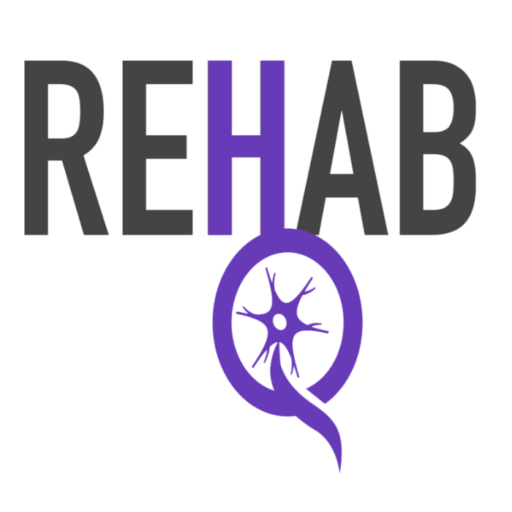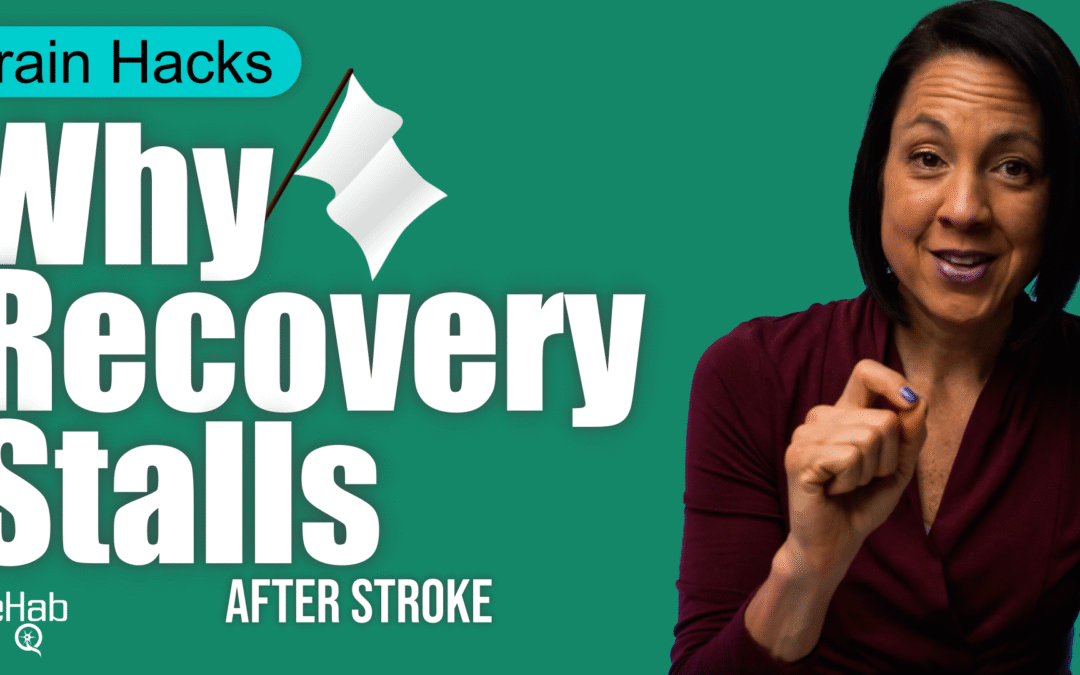Why Stroke Recovery Stalls and How to Push Through
Recovery may feel stuck, but progress is still possible. Here’s how to keep improving after a plateau.
Recovering from a stroke or neurologic injury can feel overwhelming. Walking, driving, working, or even just picking up your grandkids. It all feels like a mountain to climb. But what if I told you the secret isn’t in chasing the big goals right away? It’s in celebrating small wins every single day.
Why Big Goals Can Feel Overwhelming
I’ve worked with patients for over 22 years, and one of the most common things I see is this: the finish line feels too far away. You look at all the exercises, all the steps between where you are now and where you want to be, and it feels like dumping out a 1,000-piece puzzle. You don’t even know where to start.
And when your brain starts telling you “there’s no way I’ll get there,” motivation goes out the window.
Why Small Wins Matter for Your Brain
Recovery after stroke isn’t like recovering from a sprained ankle. It’s not just about getting your muscles stronger. You’re not just rehabbing a body part, you’re retraining your brain.
That means you need repetition, over and over, to rewire those pathways.
If someone had handed you an algebra book in elementary school, you probably would’ve thrown in the towel. But broken into small chunks? You learned, step by step, until one day algebra made sense.
Recovery works the same way.
The Confidence Snowball
Here’s what happens when you set small goals:
- You start to see yourself differently.
- You go from being “stuck” to being someone who can overcome challenges.
- Your confidence grows.
That confidence builds momentum. Momentum keeps you motivated. And once your brain starts to believe that, progress speeds up.
Real-Life Wins
Some of my patients want long exercise lists. They feel like if they’re not doing more, more, more, they’re not working hard enough.
But in reality? The people who get the best results are the ones who stick to a short, simple program every single day.
For example: Flipping your hand over 10 times.
These things sound small. But stacked up over days and weeks, they create real change. I’ve seen it hundreds of times.
Celebrate Every Step
Some of the best signs of progress aren’t dramatic, they’re subtle. Things like:
- Being able to lift your leg into the car a little easier
- Stepping over a curb without thinking about it
These are huge wins. If you start writing them down every day, you’ll be amazed at how far you’ve come in just a few weeks or months.
And if you feel like you can’t find any win? Then celebrate the fact that you showed up and did something today. That alone is a win.
How to Make Small Wins Work for You
Keep goals tiny. Make them so small you know you can succeed daily.
Tie them to a habit. Brush your teeth? Do 3 sit-to-stands right after. Making coffee? Practice standing balance for 5 seconds.
Check in occasionally. Zoom out every month or two to see how today’s small goals fit into your bigger vision.
Final Thoughts
Recovery isn’t one giant leap. It’s thousands of small steps, stacked one on top of another.
Don’t underestimate them.
Today, ask yourself: what’s one tiny win I can create? Do that, celebrate it, and trust that these small daily victories will add up to something far bigger than you can imagine.
And if you want more support, structure, and guidance on how to make this work in your recovery, check out our Rehab HQ Membership plans here. It’s designed to give you community, tools, and step-by-step strategies so you can stay consistent and keep moving forward.
Articles you may be interested in
Blocked, Random, or Distributed? How to Choose the Right Practice Schedule in Stroke Recovery
Blocked, Random, or Distributed? How to Choose the Right Practice Schedule in Stroke Recovery Let’s talk about one of the most overlooked pieces of stroke recovery: How you practice. Not what…Not how long…But how the practice is structured. Because believe it or not,...
You have just had a stroke. Now what?
You’ve Just Had a Stroke. Now What? Acute Phase Recovery Guide – What to Expect in the First Few Days First Things First… If you’re here, you or someone you love has likely just had a stroke. Let’s pause for a moment and say what most people won’t: This is...
Gravity Matters: How to Use It (or Remove It) in Stroke Recovery
Gravity Matters: How to Use It (or Remove It) in Stroke Recovery When I say "use gravity to your advantage"… what I really mean is: be strategic. One of the biggest mistakes I see in rehab (especially home programs) is doing exercises that are technically correct—but...
Use Synergy Patterns Sparingly (and Here’s Why That Matters)
Let’s talk about something that shows up in nearly every stroke recovery journey: synergy patterns. You might not know them by name. But if you’ve ever noticed your arm “wants” to move in one big sweeping motion (instead of just lifting your hand)… or if your leg...
Best Arm Rehab Post Stroke
Discover how new research is changing what’s possible for stroke survivors with little to no arm movement. https://youtu.be/Bw-rd1Fx02cWhat if I told you that even if you can’t move your arm after a stroke, there are still powerful ways to promote recovery—and...
Food Is Fuel—and Medicine: Why Nutrition Shapes Your Recovery
What you eat might be the most powerful rehab tool you're not using. Nutrition isn’t just about weight or willpower. It’s not about which diet is trending this year. And it’s definitely not about perfection. It’s about function. And when your brain is trying to heal,...
Stroke Recovery Essentials: 4 Non Negotiables For Brain Healing
We talk a lot about exercises in stroke recovery. But here’s the truth: recovery doesn’t start with movement—it starts with oxygen. When a stroke cuts off blood flow, your brain enters a chemical storm. Inflammation surges. Oxidative stress damages neurons. The...
When Your Brain Forgets Half the World: Understanding Hemispatial Neglect
When Your Brain Forgets Half the World A practical guide to hemispatial neglect after stroke Let’s talk about something that doesn’t get nearly enough attention—literally. It’s called hemispatial neglect.And if you’re dealing with it, you already know how frustrating,...
3 Big Balance Mistakes After Stroke—and How to Fix Them
Have you ever felt like your balance is fine at home… but the moment you step outside, it’s a totally different story? You’re not alone—and there’s a good reason for that. I talk to a lot of people who say, “I feel pretty confident walking around my house, but the...
Post Stroke “help” isn’t helpful: A Lesson from the Butterfly
“We delight in the beauty of the butterfly, but rarely admit the changes it has gone through to achieve that beauty.” — Maya Angelou “If only I had more help”… More therapy. More equipment. More family support. “Then things would be different. I would be different....














